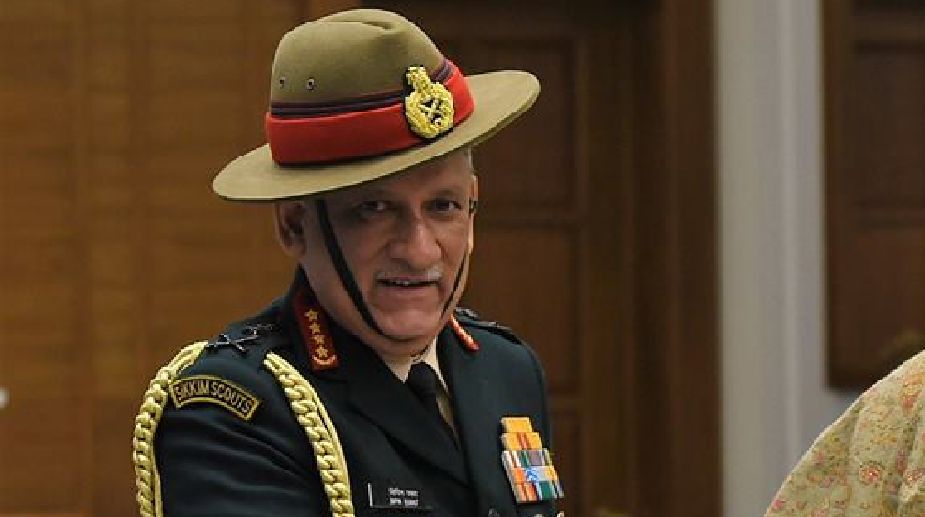Resetting Ties
The meeting between Prime Minister Narendra Modi and Chinese President Xi Jinping at the Brics summit at Kazan marks a significant moment in the evolving dynamics between two of the world’s largest economies.

Army chief General Bipin Rawat (Photo: Facebook)
At a point in time when satisfaction and relief was being expressed over the successful diplomatic resolution of the Sino-Indian stand-off at Doklam, the Chief of the Army Staff has emphasised the need to “keep the powder dry” ~ and reiterated the military’s theory that India must remain prepared to fight on two fronts.
Since Gen Bipin Rawat was hand-picked for the job, few would believe that his seemingly “out of sync” comment was made off his own bat, there would be suspicions that it was part of a larger message that New Delhi was seeking to deliver to Beijing.
The reaction from the external affairs ministry might help clarify the picture, but the Chief’s observations would seem at variance with the Foreign Secretary’s line that the latest bilateral interaction of the Chinese and Indian leadership after the BRICS summit was “forward looking”.
Advertisement
More significant would be the way in which the Chief’s statement is “read” in China, both its official spokespersons and commentators had been belligerent during the 73- day impasse at the Sino-Indian-Bhutanese trijunction, and an earlier comment from Gen Rawat about fighting on two fronts had provoked vicious rhetoric.
It is to be hoped that the Chief did not resort to fauji talk because he was addressing a military audience at a think-tank in New Delhi, he must have been alive to the reality that given the current context every word of his would be scrutinised, the “simple soldier” explanation will not suffice.
While Gen Rawat analysed the potential for conflict with both Pakistan and China, his observations on the Northern front assumed special significance since the situation at the trijunction had been explosive until a few days back. “As far as the northern adversary is concerned, the flexing of muscle has started.
The salami slicing, taking over territory in a very gradual manner, testing our limits of threshold is something we have to be wary about, and remain prepared for situations emerging which could gradually emerge into conflict.”
He also noted that China had engaged in psychological warfare by using the media and information technology during the Doklam face-off. Not surprisingly he rejected the notion that credible deterrence could prevent war and sought adequate budgetary provision for the military. Nor did he subscribe to the view that a nuclearised environment averted conflict.
“Nuclear weapons are weapons of deterrence. Yes they are. But to say that they can deter war or they will not allow nations to go to war, in our context may also not be true.”
During the eyeball-to-eyeball logjam at Doklam the Indian establishment has opted for very measured commentary, refused to be tempted into a rhetoric-roughhouse. Hence the Chief’s falling back on tough talk is a trifle surprising unless part of an unfolding game-plan.
Else no “Doklam dividend” accrues.
Advertisement